Europe
Rights Group Demands Release Of LGBTI Siblings From Chechen Detention Center
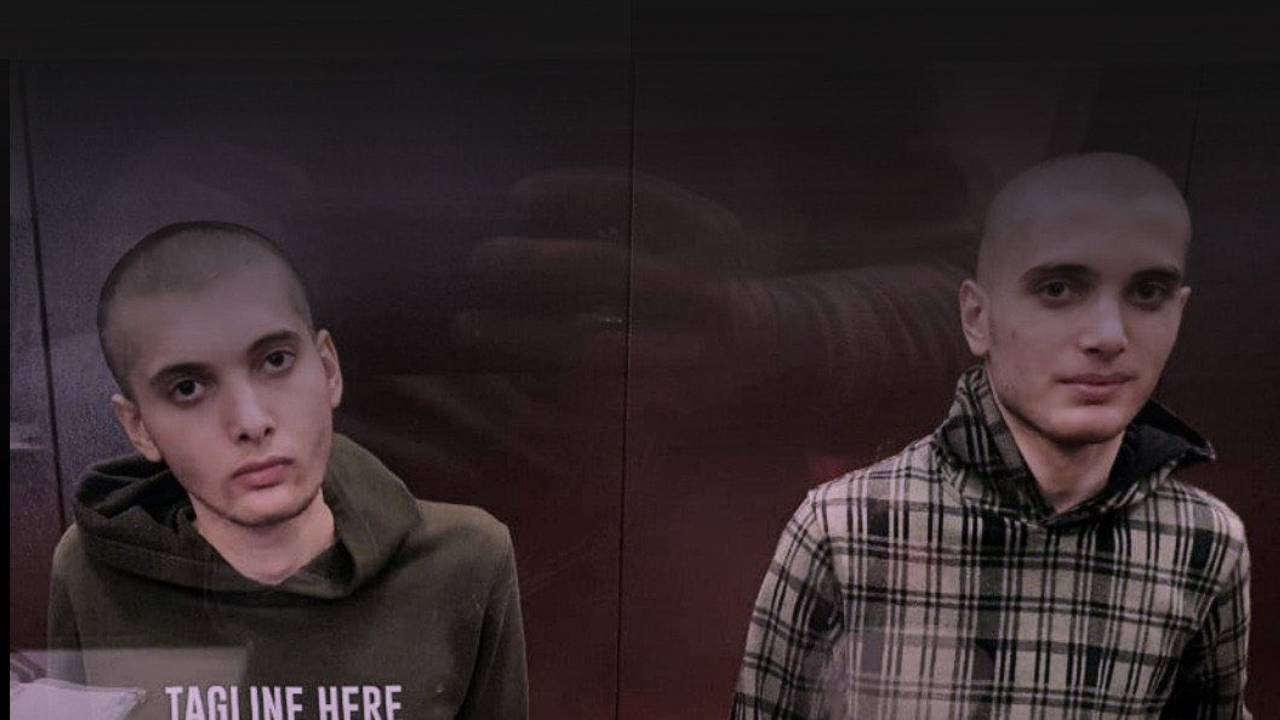
This article originally appeared on Radio Free Europe/Radio Liberty
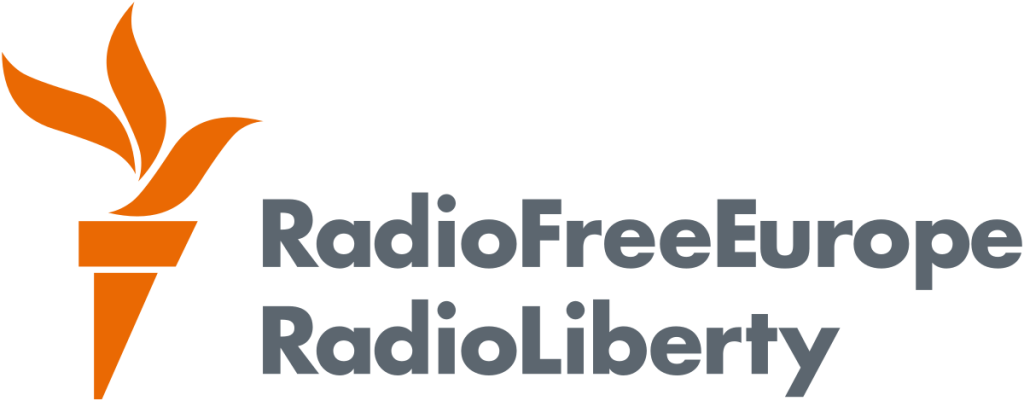
Amnesty International has called for the immediate release of two Chechen siblings who face possible 8 1/2-year prison sentences for what the rights group describes as false accusations of “aiding illegal armed groups.”
It says a verdict is expected in the Achkhoy-Martan district court of the southern Russian republic on February 22 in the case against siblings Salekh Magamadov, 21, and Ismail Isayev, 19.
One of the two is gay and the other is gender-transitioning, Amnesty says.
“Salekh Magamadov and Ismail [Isayev] must be immediately and unconditionally released. They should never have been charged in the first place,” a statement quotes Marie Struthers, Amnesty International’s Eastern Europe and Central Asia director, as saying.
“Belonging to the LGBTI community in Chechnya — or anywhere else for that matter — is not a crime,” Struthers said. “Their ordeal must end now.”
The two have been in a Grozny detention center since February 2021.
In September, the Moscow-based Memorial Human Rights Center, which was recently ordered by Russian authorities to shut its doors, recognized the siblings as political prisoners and said their case was “marred with blatant violations.”
In July 2020, the Russian LGBT Network helped Magamadov and Isayev move to the city of Nizhny Novgorod, from which they planned to leave Russia for an unspecified foreign country.
But they were abducted from a flat provided by a local NGO and taken to Chechnya a year ago.
The volatile region’s government and its leader, Ramzan Kadyrov, who has ruled Chechnya since 2007, are frequently accused by Russian and international activists of overseeing grave human rights abuses that include abductions, torture, and extrajudicial killings.
Copyright © 2022 RFE/RL, Inc. Reprinted with the permission of Radio Free Europe/Radio Liberty, 1201 Connecticut Ave NW, Ste 400, Washington DC 20036.
Europe
UK to Issue Commemorative Pride Coin
Featuring evocative artwork, the coin encompasses the very essence of Pride’s history in the UK and marks the first time we have celebrated the UK’s LGBTQ+ community on a UK coin. Made with support from Pride in London, this release is not only a celebration of Pride UK but also a numismatic tribute to the indomitable spirit of the UK’s LGBTQ+ community.
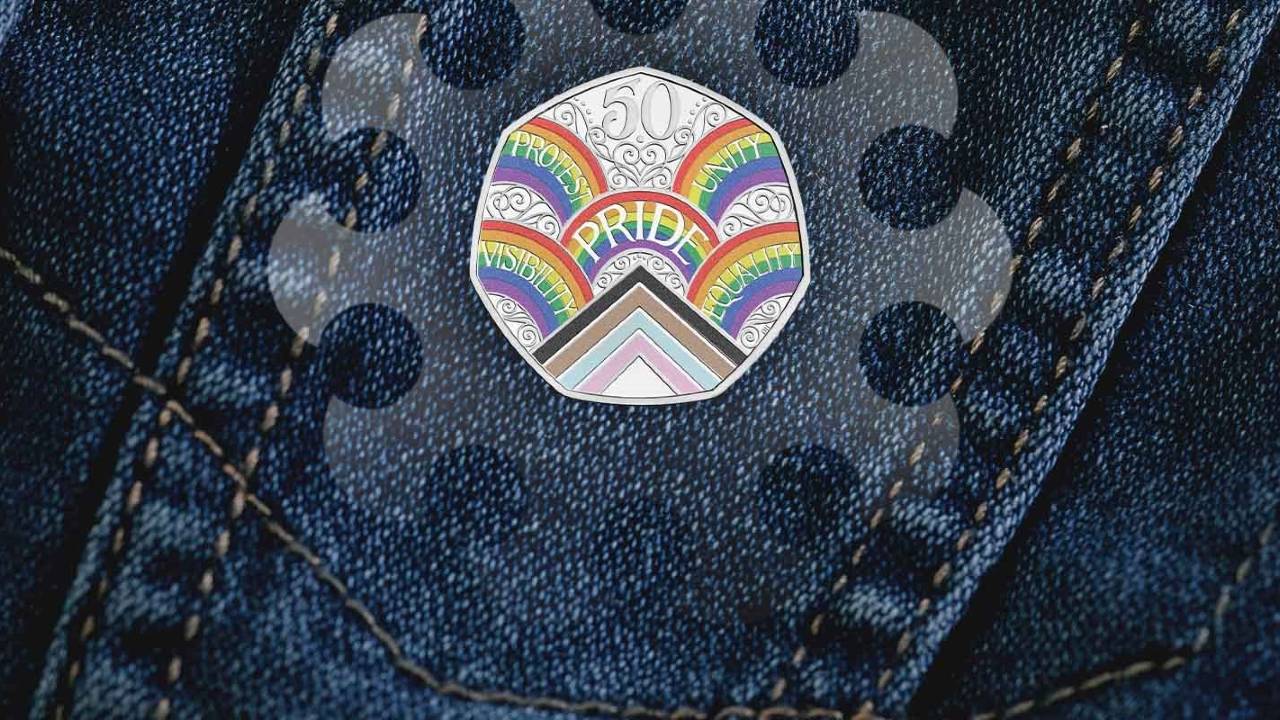
The UK Royal Mint revealed a commemorative 50 pence coin to celebrate the 50th anniversary of Pride UK. This coin marks the first time Britain’s LGBTQ+ community has been celebrated on official UK coinage, and forms part of The Royal Mint’s wider commitment to diversity and inclusion.
The coin has been designed by Dominique Holmes, an east London artist, writer, and LGBTQ+ activist with a varied artistic background that includes tattoo artistry. The coin design features Pride in London’s values of Protest, Visibility, Unity, and Equality in rainbows. With state-of-the-art color printing technology, the iconic colors of the Pride progression flag are recreated with special-edition color versions of the silver and BU coins.
Since the first official Pride UK event in 1972, the Pride UK movement has been one of significant political and cultural importance. Now in its 50th year, Pride UK is more popular than ever and continues to fight against societal oppression and stand up for rights of the LGBTQ+ community.
Asad Shaykh, Director of Marketing and Communications at Pride in London said, “It was a privilege to visit The Royal Mint as part of our partnership and see our coin being made.
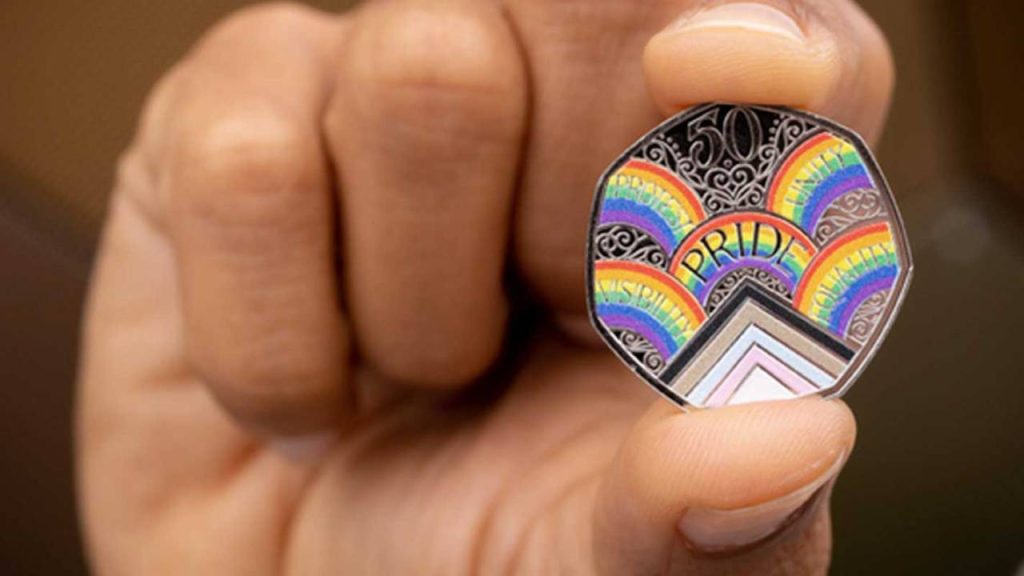
“It humbles me greatly that the words that I coined for the brand, PROTEST, VISIBILITY, UNITY & EQUALITY – will be on an actual coin, opposite the Queen. This queer brown immigrant has come a long way, powered by hope, love and this city. Nowhere in the world had this been possible, except the UK. Pride in London feels very proud today.”
Clare Maclennan, Director of Commemorative Coin at The Royal Mint said, “The 50th Anniversary of Pride UK is a milestone celebration, and it is a privilege to mark 50 years of progress with this 50p coin. This is the first ever UK coin dedicated to Britain’s LGBTQ+ community, with color printing technology capturing the spirit of Pride UK with its iconic rainbow colors.
“It was an honour to host representatives from Pride in London at The Royal Mint recently to strike their own coins as part of the launch and discuss with them our commitment to diversity and inclusion within the business and show how we are reinventing for the future.”
As part of the launch, The Royal Mint will make a financial contribution to London LGBT Community Pride. The 50p will not enter circulation but will be available to purchase via The Royal Mint website this summer. The range includes gold, silver, and brilliant uncirculated versions.
The launch of the new LGBTQ+ coin forms part of The Royal Mint’s wider commitment to equality, diversity, and inclusion. Alongside D&I training for all employees, a network of D&I Champions has been established to support The Royal Mint’s wider vision of celebrating differences for an inclusive future.
This commitment also extends to an LGBTQ+ society for employees at The Royal Mint; established last year. Named ‘Enfys’, the Welsh word for Rainbow, the group has hosted Q+A sessions, shared their personal stories and encouraged visibility and allyship amongst employees.
Europe
War in Ukraine Transforming LGBTQ+ Rights Landscape in Europe
While it is tempting to view the war in Ukraine as a metaphor for some larger struggle between a tolerant West and an intolerant East, the reality is inevitably far more complex.
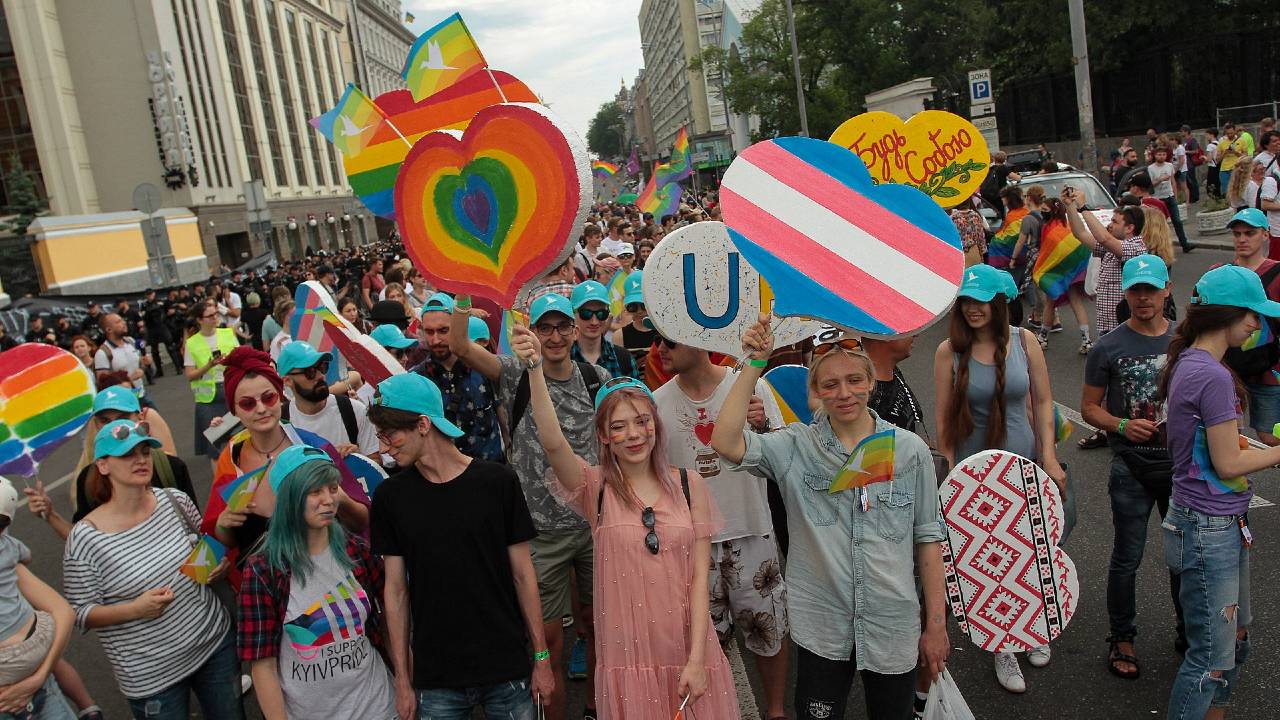
This article is republished from The Conversation under a CC BY-ND 4.0 license. Read the original article.
For Ukrainian LGBTQ+ rights activists, a Russian victory is an existential threat to both the sovereignty of Ukraine and the rights of LGBTQ+ people.
In his Feb. 24 speech, President Vladimir Putin used LGBTQ+ rights as a justification for his military operation, arguing that the West sought to destroy Russian “traditional values” with their “false values.”
For some LGBTQ+ Ukrainians, the war is a call to arms — both in support of their homeland and in support of their rights. For others, the threat of persecution is prompting them to flee.
But because of powers conferred by martial law, some LGBTQ+ refugees have been pushed back at the border while others are taking dangerous routes out.
According to Polish LGBTQ+ activists we spoke with in Warsaw in April 2022, one trans man was pushed back at the border by a Ukrainian border guard and told: “if you want to be a real man, prove it — stay and fight.”
The imperative for LGBTQ+ people to fight is also reflected in the advocacy of LGBTQ+ rights groups like Kyiv Pride, Ukraine Pride and LGBTIQ Military. They have positioned LGBTQ+ participation in the military as fundamental to Ukraine’s survival.
Posts on Instagram introduce audiences to the gay Ukrainian men fighting for their country, while photos show drag artists donning military attire with the caption “Ukrainian drag queens destroy Moscovian [sic] occupiers!.”
But for LGBTQ+ Ukrainians who have fled, these posts and messaging can bring feelings of shame.
LGBTQ+ rights on the frontline
A narrative is emerging in western media that frames the war as a battle for LGBTQ+ rights against a backward, conservative and intolerant Russia. And it’s influencing the politics of the European Union.
The European Commission has long criticized Hungary and Poland over their stance on LGBTQ+ rights. In April 2022, it launched disciplinary proceedings against Hungary — which would cut off EU funding — because the country’s anti-LGBTQ+ laws were violating the rule of law. There’s also growing pressure in the EU Parliament to enact similar steps against Poland.
These instances suggest the EU is becoming more robust in its defence of “European values” by standing up to member states that backslide on the democratic standards of the EU.
Similarly, LGBTQ+ activists we spoke with in Poland described how the war presents opportunities to change hearts and minds in the country. Poland’s President Andrzej Duda won re-election in June 2020 campaigning against “LGBTQ+ ideology.”
For LGBTQ+ activists, the parallels between Duda and Putin may be pivotal in their own advocacy efforts — especially if being pro-LGBTQ+ equals being anti-Russian. One LGBTQ+ activist we spoke with said there is now renewed hope:
“Poland is perceived as homophobic but there are lots of beautiful people working on this. Things can change.”
Militarizing the struggle for LGBTQ+ rights
The frequency with which LGBTQ+ rights are currently being positioned as a key battleground is problematic. While we are seeing transformation in the LGBTQ+ rights landscape in Europe, and some activists feel a renewed sense of hope, literature on LGBTQ+ rights, migration and conflict offer some stark warnings.
In Queer Wars, the authors draw attention to the increasing geopolitical polarization over LGBTQ+ rights. Political leaders, such as those in Russia, Hungary and Poland, have used anti-LGBTQ+ stances and policies to position themselves as defenders of traditional values against western degeneracy. For Russia, once again, this was used as a justification for the war in Ukraine.
But as international relations scholar Cai Wilkinson notes, linking LGBTQ+ rights with the rhetoric of war risks oversimplifying the stakes of queer liberation by replacing a complex view of specific, contextual struggles for rights with monolithic narratives of winners and losers.
For example, borrowing from philosopher and queer theorist Jasbir Puar’s concept of “homonationalism,” there is a risk that the struggle for LGBTQ+ rights is simplified into a straightforward narrative of European or western values versus the intolerance of the East or “the rest.”
In the years following the so-called European refugee crisis, this rhetoric was used to justify hard borders and the framing of refugees as a threat to European values of liberalism and tolerance, underscored by intense Islamophobia.
In 2017, German politician Jens Spahn argued that the moral values of refugees differ significantly to those of Germans, citing homophobia and transphobia as examples. Similar rhetoric has been used by the politicians in the United States, pitting LGBTQ+ rights against Muslims, the threat of foreign regimes and terrorism.
In 2021, Ursula von der Leyen, president of the European Commission, tweeted that the EU is an #LGBTIQFreedomZone in response to the introduction of “LGBTQ+ free zones” in approximately 100 Polish municipalities. However, despite such a declaration, LGBTQ+ rights in Europe remain precarious and many are barred from entering Fortress Europe.
Being yourself is not an ideology. It’s your identity. No one can ever take it away.
🇪🇺🏳️🌈The EU is your home.
The EU is a #LGBTIQFreedomZone pic.twitter.com/Kt3m6W6TL2— Ursula von der Leyen (@vonderleyen) March 10, 2021
Implications for Ukraine
While the war in Ukraine appears to be emboldening calls for LGBTQ+ rights protections and transforming the advocacy efforts of groups in Ukraine, there are risks that LGBTQ+ rights and liberation could be swallowed by the rhetoric of war or homonationalist narratives.
Despite the promises of freedom and safety, LGBTQ+ refugees from Ukraine face substantial protection gaps in accessing services and support — particularly if they are people of colour, or not Ukrainian passport holders.
While it is tempting to view the war in Ukraine as a metaphor for some larger struggle between a tolerant West and an intolerant East, the reality is inevitably far more complex. It is worth interrogating these narratives in order to understand the realities facing LGBTQ+ people.
Aydan Greatrick (PhD Candidate, Migration Studies, UCL), Tyler Valiquette (PhD Student, Human Geography, UCL), Yvonne Su, (Assistant Professor in the Department of Equity Studies, York University, Canada) contributed to this story
The Conversation is an independent, nonprofit publisher of commentary and analysis, authored by academics and edited by journalists for the general public.
Europe
The Worrying Regression Of LGBT Rights In Eastern Europe
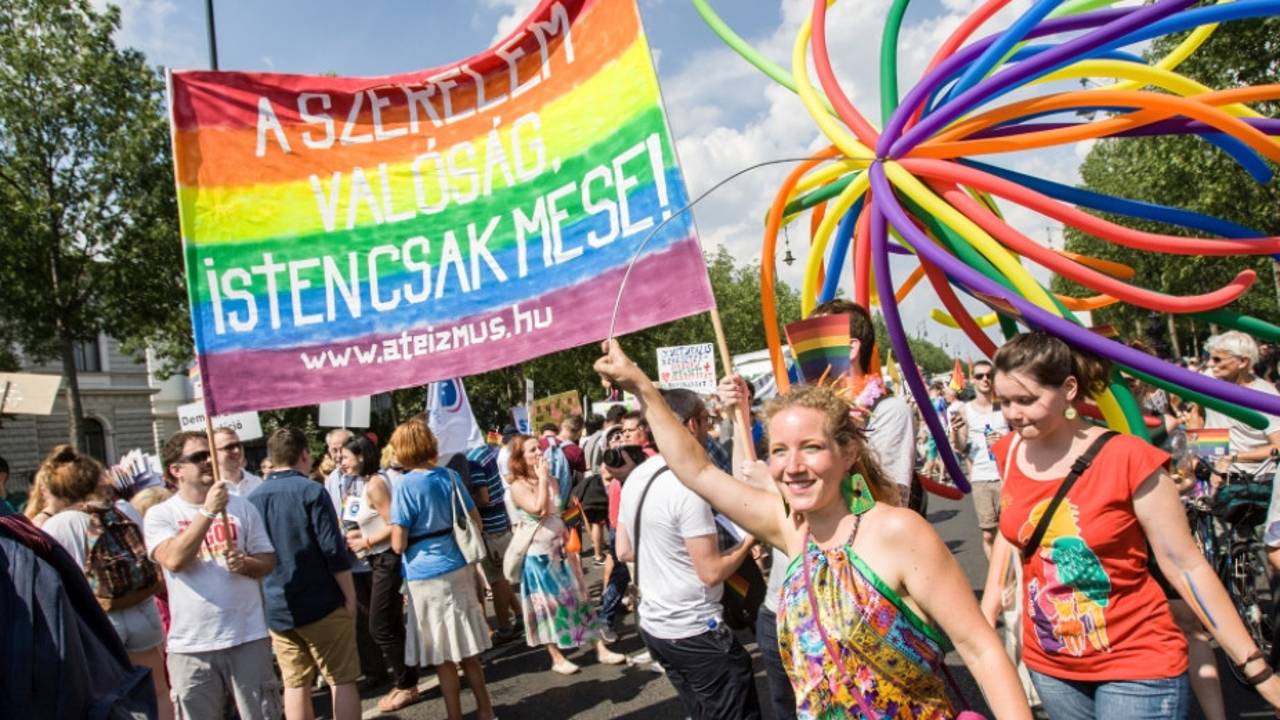
This article originally appeared on Radio Free Europe/Radio Liberty

From physical attacks to online abuse and legislative setbacks, the LBGT community in Central and Eastern Europe had little to cheer about in 2021.
Populist governments in Poland, Hungary, and elsewhere were able to exploit frustrations and fears, some stoked by church leaders, some by the grinding COVID-19 pandemic, to push through anti-LGBT legislation.
It was, however, part of a wider trend over a wider swath of Europe, argues Evelyne Paradis, executive director of the European branch of the International Lesbian, Gay, Bisexual, Trans and Intersex Association (ILGA-Europe).
“Poland and Hungary are not anomalies. In the past year, we’ve seen increased political repression against LGBT people, a stark rise in socioeconomic hardship, and the spreading of LGBT-phobic hatred on the streets and online across the region,” Paradis told RFE/RL in e-mailed comments.
Low points of the year included an attack on a LGBT community center in the Bulgarian capital, Sofia, led by a far-right leader who ran in the country’s presidential election; a new law in Hungary banning information in schools deemed to promote homosexuality and gender change; and several so-called “LGBT-ideology free zones” continued to operate in Poland.
Much outrage was directed at the new Hungarian legislation, which critics say equates homosexuality with pedophilia, but which Budapest and its nationalist Prime Minister Viktor Orban argued would protect children and families. EU leaders condemned the new Hungarian legislation with European Commission President Ursula von der Leyen calling it a “shame.” But nearly all the leaders of former communist Eastern Europe refused to sign a letter condemning the Hungarian law.
It highlighted a wider rift across the continent, with some analysts arguing an “Eastern European Union” is emerging based on positions that contradict fundamental EU values such as the rule of law, human rights, media rights, and LGBT rights.
“I think that the whole attitude of this alignment is very anti-European. It shows signs of an establishment of some sort of a new Iron Curtain,” said Marko Milosavljevic, a professor of journalism and media policy at the University of Ljubljana, in comments to Reuters back in July.
From LGBT Leaders To Laggards
It wasn’t so long ago that things were different. At the time of the fall of the Berlin Wall in 1989, Central and Eastern Europe was generally welcoming to LGBT people.
Going back even further, many countries in the region were at the vanguard of advancing such rights, at least on paper.
“In the former East Bloc, these countries were really progressive towards LGBT rights. Poland, for instance, decriminalized homosexuality in 1932, which was really early,” said Agnieszka Koscianska, a visiting professor at the Oxford School of Global and Area Studies, in an interview with RFE/RL.
Hungary decriminalized homosexuality in 1961 as did then-Czechoslovakia. Bulgaria followed suit seven years later in 1968. Other countries lagged behind. In Romania, the last person imprisoned for being gay walked free in 1998. Three years later in 2001, the country decriminalized homosexuality while harmonizing its laws with the EU to gain membership. Yugoslavia began chipping away at its anti-homosexual laws. However, homosexuality remained illegal in Serbia and Kosovo until 1994, in Macedonia until 1996, and in Bosnia-Herzegovina until 1998.
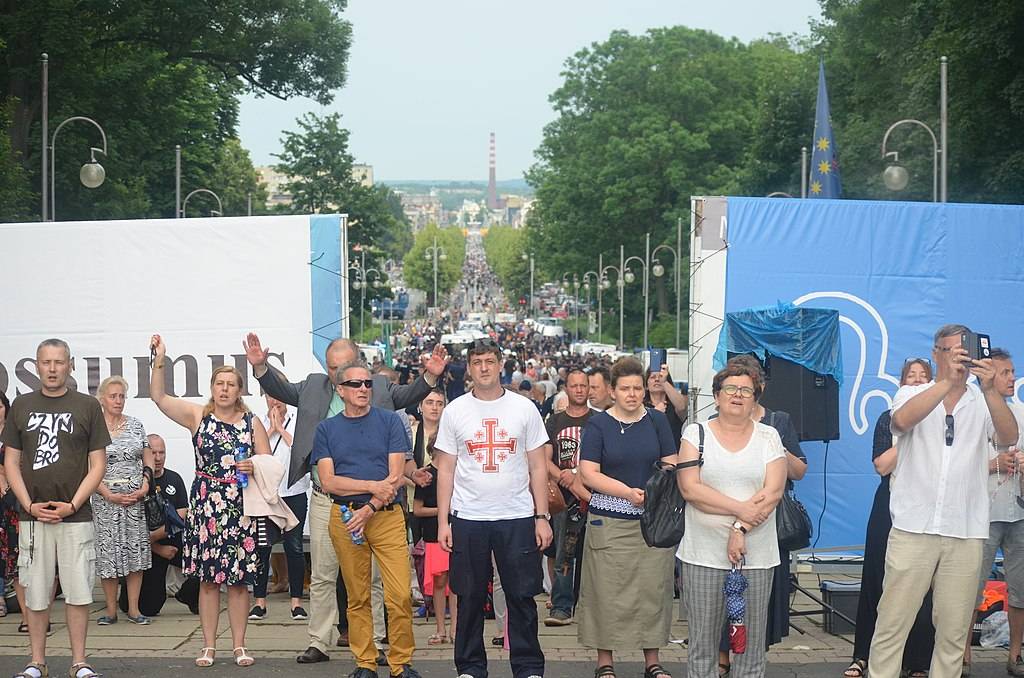
Attitude Gap
People in Western and Eastern Europe differ in attitudes to the LGBT community, polling numbers show.
A majority of those polled in all Western European countries support same-sex marriage, according to polling data from the Pew Research Center. In nearly all Eastern European countries — with the exception of the Czech Republic — the majority oppose it.
The divide widens the further one moves west to east, said Jacob Poushter, Pew’s associate director for global attitudes research.
“Support for the position that homosexuality should be accepted by society is quite high in Western Europe. So, in Germany the figure is 86 percent, in the Netherlands it’s even higher at 92 percent, in Spain it’s 89 percent. But once you pass the dividing line, on the other side of the former Iron Curtain, those numbers begin to drop very sharply and get even lower as you go into Russia,” Poushter told RFE/RL in an interview.
According to 2020 data presented by Poushter, 47 percent of people in Poland and 49 percent of people in Hungary say homosexuality should be accepted. In Bulgaria, that figure drops to 32 percent. In Russia, it’s 14 percent. Even in the more liberal Czech Republic the figure is only 59 percent.
Anti-LGBT, Anti-Vaxxers, Cut From The Same Cloth?
While general attitudes may diverge, anti-LGBT sentiments are often associated with nationalist and the far-right movement in both Eastern and Western Europe, explained Heleen Touquet, chair of European values at the University of Antwerp.
“Members of far-right parties and movements have expressed conservative, heteronormative, and binary views of gender and sexuality that seriously limit the self-expression and freedom of LGBT people and people who challenge what are seen as traditional gender norms and norms of the family. This is something that the far right in Western Europe has in common with politicians like [Slovenian Prime Minister] Janez Jansa, [Hungarian Prime Minister] Viktor Orban, and the [ruling] PiS (Law and Justice party) in Poland,” Touquet told RFE/RL.
In Bulgaria, Boyan Rasate, a notorious far-right figure who also unsuccessfully ran in the country’s November presidential election, was accused of leading an attack in Sofia on October 30 on the Rainbow Hug, a gathering place for the LGBT community.
“I started shouting, ‘No!’ to stop them from coming in,” explained Gloriya Filipova, the group’s project coordinator. “[Rasate] hit me and just kept coming. Everyone else followed him in,” Filipova told RFE/RL’s Bulgarian Service.
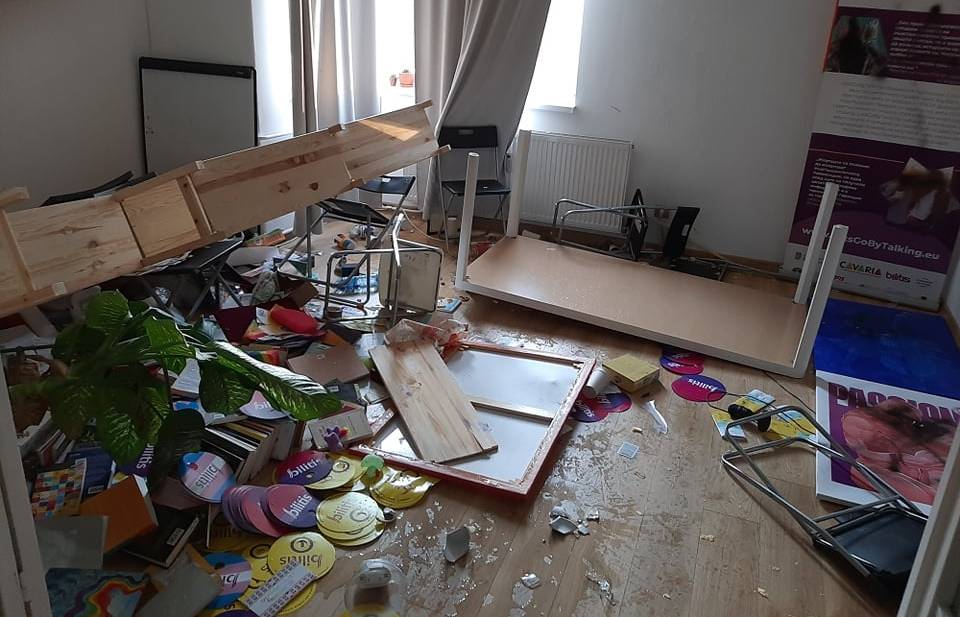
Negative Messaging Fanned By Russia
Perhaps not as toxic, but hostile LGBT attitudes are not limited to the fringes of Eastern Europe’s political classes.
In July, 17 of the EU’s 27 leaders penned an open letter criticizing Hungary’s new legislation. Estonia, Lithuania, and Latvia were the only former communist countries to sign it.
Among other things, the changes to the Hungarian Constitution in December 2020 altered the definition of families to exclude transgender and other LGBT individuals, defining the basis of the family as “marriage and the parent-child relationship.” It declared that “the mother is a woman and the father is a man.”
Milos Zeman, the president of the relatively liberal Czech Republic, told CNN local affiliate CNN Prima earlier this year that transgender people “truly disgust” him.
The LGBT community is increasingly finding itself being targeted by populist politicians, Dunja Mijatovic, the human rights commissioner of the Council of Europe, wrote in August.
“Scapegoating LGBTI minorities has become a tactic applied by ultraconservative and nationalist politicians posing as defenders of so-called “traditional values” to strengthen their base and gain or stay in power. I have observed that stigmatization of LGBTI people is particularly pronounced in the run-up to elections and votes,” Mijatovic said.
“Negative public discourse by politicians” has impacted social attitudes toward LGBT people, a survey by the EU’s Fundamental Rights Agency’s (FRA) found in 2020.
“Too many LGBTI people continue to live in the shadows, afraid of being ridiculed, discriminated. or even attacked, FRA Director Michael O’Flaherty said.
In Central and Eastern Europe, Russia may be stoking some of this sentiment, argued Accept Association Executive Director Teodora Ion Rotaru, whose LGBT rights group organizes Bucharest’s annual pride festival.
“We see in the media and social media a significant amount of Russian meddling and dissemination of fake-news, aimed to incite conflict. We have seen this most clearly with the anti-vax movement, which, of course, overlaps with the anti-LGBT rights and anti-gender movements in terms of people and resources,” Rotaru told RFE/RL.
“We should realize that security experts already see this type of behavior as part of a hybrid war that Russia is waging on the EU, by attacking our core European values — freedom, democracy, the rule of law, and equality,” she added.
Staunchly conservative governments in Central and Eastern Europe are not only stoking anti-LGBT attitudes but complicating efforts to protect LGBT people as well.
In October, EU justice ministers failed to adopt a common position on the EU strategy for the rights of the child when Poland and Hungary vetoed references to LGBT content.
“There’s an almost complete standstill on LGBTI rights and equality in the EU and Europe, which is extremely worrying especially at such a critical time for LGBTI communities. The movement that is attacking women’s rights, LGBTI rights, sexual and reproductive rights has become a lot more present, resourced, and active across Europe,” Paradis warned. “In some countries there’s a real regression, and rights that had been recognized are now being challenged.”
Copyright © 2021 RFE/RL, Inc. Reprinted with the permission of Radio Free Europe/Radio Liberty, 1201 Connecticut Ave NW, Ste 400, Washington DC 20036.



